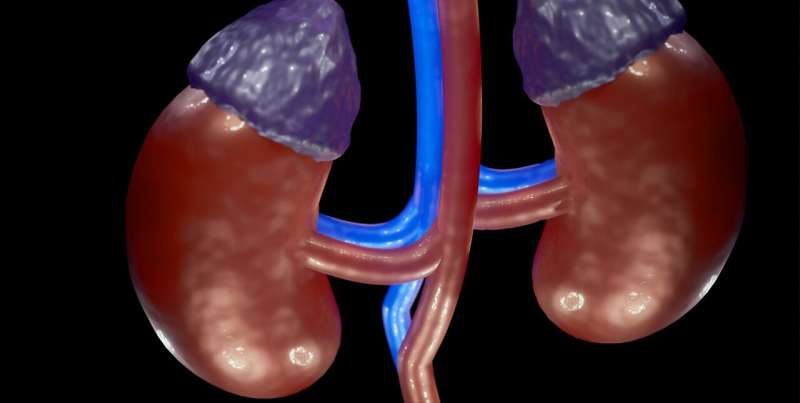This article has been reviewed according to Science X's editorial process and policies. Editors have highlighted the following attributes while ensuring the content's credibility:
fact-checked
trusted source
proofread
Meditating with headband that tracks brain activity may improve surgical recovery in patients with Cushing's syndrome

Patients with Cushing's syndrome who are recovering from surgery and wear a headband that tracks brain activity while they meditate may have less pain and better physical functioning compared with patients not using the device, suggests a study presented at ENDO 2024, the Endocrine Society's annual meeting in Boston, Mass.
The headband, called MUSE-2, uses electroencephalogram (EEG) sensors to measure brain activity and provides audio biofeedback while a person meditates.
Cushing's syndrome is a rare endocrine disorder caused by chronic exposure to excess levels of cortisol—a hormone naturally produced by the adrenal gland. Symptoms include muscle weakness and difficulties with memory and concentration. In women, there may be increased growth of facial and body hair, and menstrual periods may become irregular or stop completely. Treatments for the disorder are available but Cushing's syndrome can be fatal if not treated.
Treatment may include surgery, radiation, chemotherapy or the use of cortisol-inhibiting drugs. Patients undergoing surgery experience glucocorticoid withdrawal syndrome (GWS) following curative surgery. The symptoms of GWS include fatigue, weakness, muscle aches, joint pain, mood changes, and sleep disturbance. Patients often report that recovering from Cushing's syndrome is temporarily more difficult than living with Cushing's syndrome.
The researchers wanted to study meditation in patients recovering from curative surgery for Cushing's disease because meditation has been reported to enhance postsurgical recovery in patients with other conditions, said researcher Jasmine Saini, M.B.B.S. of the Mayo Clinic in Rochester, Minn.
"With little known about the interventions that can help patients experiencing glucocorticoid withdrawal syndrome, our group is the first to explore meditation to enhance post-surgical recovery," she said.
The study included two groups of patients recovering from surgery. The intervention group of 27 patients was offered a MUSE headband with instructions to meditate for at least 10 minutes per day for three months. The comparison group of 81 patients did not use the headband. Three months after surgery, patients using the MUSE headbands reported significant improvements in physical functioning and body pain compared with the comparison group.
"Despite a small sample size and short follow-up, results demonstrating improvement in body pain and physical functioning domains in the MUSE cohort are promising," Saini said.
"We are motivated to study biofeedback meditation's impact on quality of life in a longer follow-up. With our preliminary results, we are hopeful this device can be used to alleviate symptoms of glucocorticoid withdrawal."



















